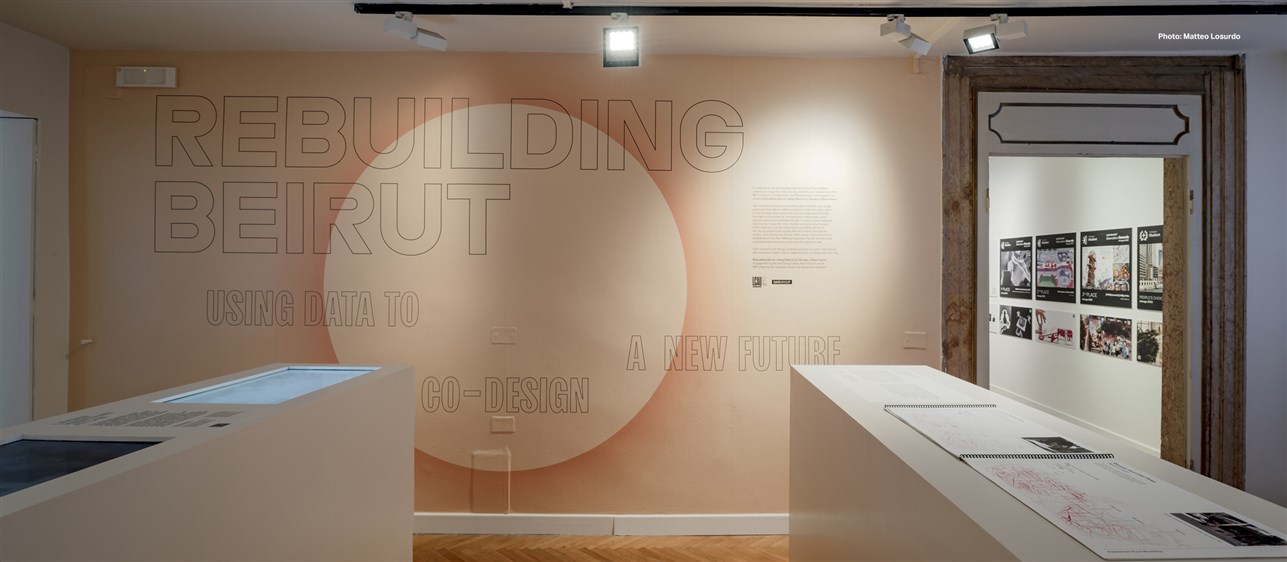
Date22.05.23
LocationVenice Europe
Exhibition
Presented by the European Cultural Centre (ECC), the sixth biennale architecture exhibition Time Space Existence will take place in Venice from May 20th to November 26th, 2023. The event features the “Rebuilding Beirut: Using Data to Co-Design a New Future” exhibit, which will showcase research conducted by the MIT School of Architecture and Planning’s (SA+P) faculty, researchers and students and supported by the Dar Group Urban Seed Grant Fund.
The exhibit showcases three collaborative research and design proposals, especially designed to support reconstruction efforts in Beirut following the catastrophic explosion at the Port of Beirut in August 2020. The three research projects and design proposals emphasise different aspects of Beirut’s urban fabric and showcase the role of data.
Commenting on the event, Daniel Horner – a Director of Planning and Urban Design at Dar – said, “From its foundation in 1956, Dar has been synonymous with the City of Beirut. Today, Dar remains the largest employer of engineers and architects in Lebanon and is committed to the country’s long-term prosperity. It is therefore a great privilege to be working in unison with our friends and colleagues at MIT to explore innovative and forward-thinking solutions to how Beirut can once again bounce back from adversity and turn the devastation caused by the 2020 explosion into an opportunity for positive change and urban renewal.”
Professor Sarah Williams, Director of the Norman B. Leventhal Center for Advanced Urbanism, added: “We are delighted to showcase Rebuilding Beirut: Using Data to Co-Design a New Future at the European Cultural Centre in Venice, which presents research as part of an ongoing collaboration between MIT’s Norman B. Leventhal Center for Advanced Urbanism and the Dar Group. What’s inspiring about all the projects is they helped forge lasting partnerships between faculty across MIT’s School of Architecture with organizations supporting the rebuilding efforts in Beirut following the catastrophic explosion at the Port of Beirut in August 2020. We believe the ties created by the Dar Group’s generous support will help generate urban innovation in Beirut for years to come.”
These projects include the Living Heritage Atlas, City Scanner, and Community Street.
Designed by the Civic Data Design Lab and the Future Heritage Lab at MIT, the Living Heritage Atlas is an open-source database that documents and visualises Beirut's living heritage of artisanship. By cataloguing its craftspeople, public spaces, and local knowledge, the website captures Beirut's intangible heritage through a collection of historical and present-day images highlighting craftspeople's cultural significance, vulnerability, and potential role in crafting the future of Beirut.
Meanwhile, City Scanner – a project by MIT’s Senseable City Lab in collaboration with the American University of Beirut and FAE Technology – is a platform that empowers communities with research-grade environmental data by harnessing existing road vehicles as a sensing infrastructure. Installed on taxis in Beirut, the sensor gathers air quality data as it travels through the streets, mapping the often-invisible environmental impacts of reconstruction on the city.
Finally, Community Streets – a collaboration between MIT’s City Form Lab and the American University of Beirut – offers street improvements for pedestrians in the Mar Mikhael, Karantina, Remeil, and Qobayat neighbourhoods closest to the explosion site. The research uses novel analysis techniques to identify a network of Community Streets where walking and non-motorised transportation improvements can be prioritised to reinvigorate street life and communal culture, support retail businesses, and encourage sustainable and healthy mobility.
The three projects were supported by the Dar Group Urban Seed Grant Fund at MIT’s Norman B. Leventhal Center for Advanced Urbanism.
